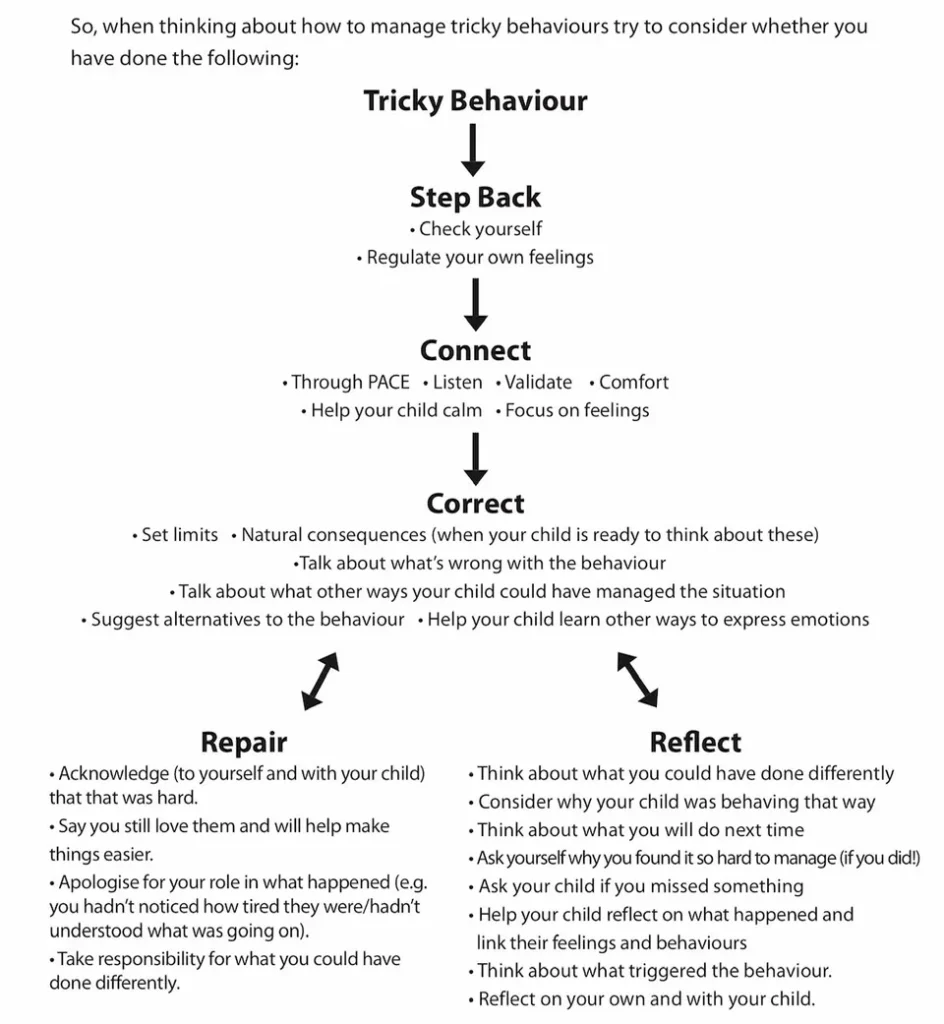Positive behaviour helps children to have better outcomes and improved wellbeing (as well as going hand-in-hand with personal, social, and emotional development), negative behaviour can do the opposite. Positive behaviour support strategies can help to address challenging behaviour and create safe spaces for children to live and learn. Professionals and caregivers need to give as much (if not more) time and attention to promoting positive behaviour, as they do to managing challenging behaviour. 5 top tips:
- Set clear expectations
- Model positive behaviours
- Be consistent
- Acknowledge positive efforts
- Evaluate what is effective when supporting behaviour
Understanding how a child’s brain works can give helpful insight when promoting positive behaviour. What does this video tell us about what might be going on for a child and how we could respond when a child might be expressing big feelings?
When a child is dysregulated, their behaviour might become harder to contain. The following flow chart reminds us of the importance of relationship and connection when managing behaviour. This gives a child an experience of co-regulation, which they need before learning how to self-regulate.

Source: Mundy, S (2020) Parenting Handbook: Helping you and your child make sense of everyday challenges together, Parenting Through Stories.

Stop and Reflect:
Take some time to think about how you respond to and manage challenging behaviour. Ask yourself the following questions:
- Can you think of a time when you have managed the challenging behaviour of a child? This could be in a work situation or caring for a sibling or child.
- How did you manage the situation? What might have been going on under the surface? What might the child have been trying to communicate?
- How might you have responded differently to the behaviour by shifting the focus and considering the need behind the behaviour?

Watch: Managing challenging behaviour in early years settings
<undefined>Anna Freud 2021 Early Years in Mind</undefined>
Anna Freud 2021 Early Years in Mind
This is an optional webinar for those who might be interesting in hearing more about how to manage challenging behaviour in early years settings.






